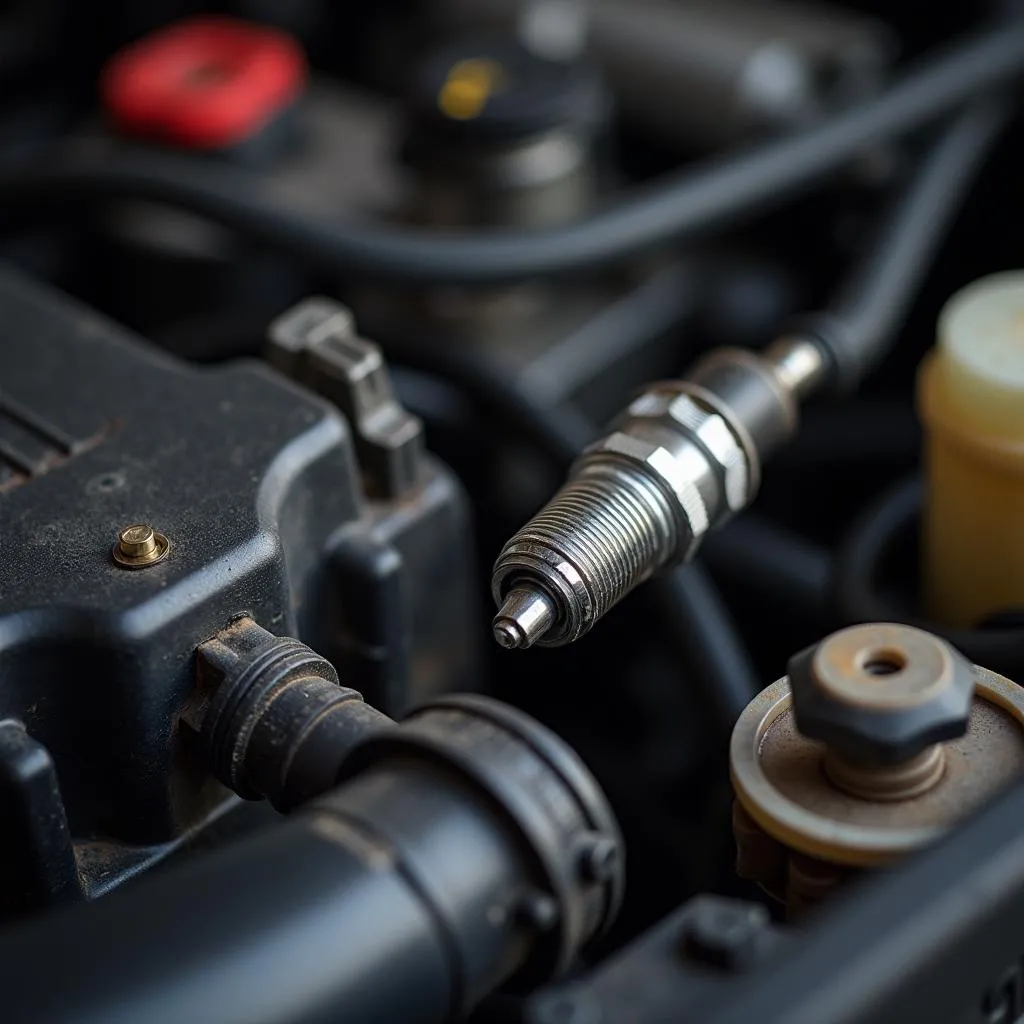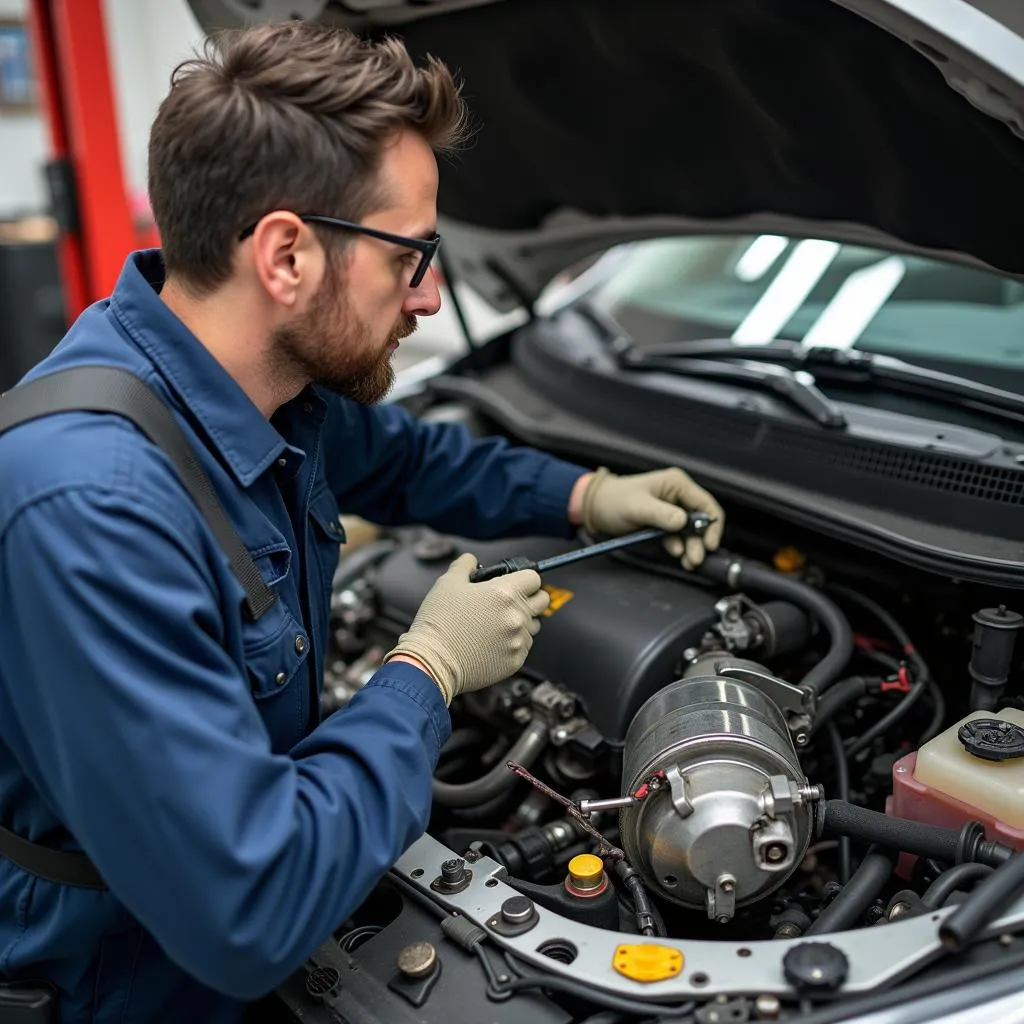It’s happened to all of us. You’re running late for work, about to pick up the kids, or just need to get somewhere important, and then…nothing. Your car won’t start. It’s frustrating, inconvenient, and can even be a little scary.
But before you panic, take a deep breath. “A car not starting is a very common problem,” says automotive expert Dr. James O’Connell, author of “The Complete Guide to Automotive Electrical Systems”, “and in many cases, it’s a relatively simple fix.”
What Does it Mean When Your Car Won’t Start?
From a mechanic’s perspective, the phrase “my car won’t start” can mean several things. It could be as straightforward as a dead battery, or it might point to a more complex issue within the vehicle’s starting or fuel system. Understanding the different ways a car might fail to start can help narrow down the potential causes.
Different Ways a Car Might Not Start
- The engine cranks but doesn’t start: You hear the engine turning over, but it doesn’t catch and run. This often indicates a problem with the fuel system, ignition system, or engine sensors.
- The engine doesn’t crank at all: You turn the key and hear a clicking sound, but the engine doesn’t turn over. This is usually a sign of a dead battery or a problem with the starter motor.
- The engine starts and then stalls: The engine starts briefly but then dies immediately. This could point to a problem with the fuel delivery system, sensors, or the anti-theft system.
 Car engine cranking but not starting
Car engine cranking but not starting
Common Reasons Why Your Car Won’t Start
Let’s take a look at some of the most common culprits behind a car that refuses to start:
1. Dead Battery
This is often the first thing mechanics check, and for good reason. A dead battery is one of the most frequent reasons for a car not starting.
Signs of a Dead Battery:
- Dim headlights
- Slow cranking
- Clicking sound when you turn the key
Possible Causes:
- Leaving your lights on overnight
- An old battery that needs replacing
- Extreme temperatures
Solution:
- Jump-start your car using jumper cables and another vehicle or a portable jump starter.
- If the battery is old or damaged, it’s best to replace it. Read more about car batteries and their lifespan.
2. Faulty Starter Motor
The starter motor is responsible for turning over the engine to begin the combustion process. If it’s faulty, your car won’t start.
Signs of a Faulty Starter Motor:
- A clicking sound when you turn the key but the engine doesn’t crank
- The engine cranks very slowly
- A grinding noise when the engine tries to start
Possible Causes:
- Worn-out starter motor
- Damaged electrical connections
Solution:
- A qualified mechanic will need to inspect and likely replace the starter motor.
 Mechanic replacing a car starter motor
Mechanic replacing a car starter motor
3. Fuel System Issues
If your car’s engine cranks but doesn’t start, the problem might lie within the fuel system.
Possible Causes:
- Empty fuel tank: It seems obvious, but sometimes we forget to check!
- Clogged fuel filter: This restricts the flow of fuel to the engine.
- Faulty fuel pump: The fuel pump is responsible for delivering fuel from the tank to the engine.
Solution:
- If you suspect a fuel system issue, it’s best to have your car towed to a mechanic for diagnosis and repair.
4. Ignition System Problems
The ignition system provides the spark needed to ignite the fuel in the engine.
Possible Causes:
- Worn-out spark plugs: Spark plugs wear down over time and need to be replaced.
- Faulty ignition coil: The ignition coil provides the high voltage needed to create the spark.
- Damaged distributor cap or rotor (in older vehicles): These components distribute the spark to the correct cylinder.
Solution:
- A mechanic can diagnose and repair ignition system problems.
5. Sensor Malfunctions
Modern cars are heavily reliant on sensors to function properly. A malfunctioning sensor can prevent the engine from starting.
Possible Causes:
- Crank position sensor: This sensor tells the engine control unit (ECU) the position of the crankshaft.
- Cam position sensor: This sensor tells the ECU the position of the camshaft.
- Mass air flow (MAF) sensor: This sensor measures the amount of air entering the engine.
Solution:
- A mechanic can use a diagnostic tool to identify and replace any faulty sensors.
What To Do When Your Car Won’t Start
- Stay Calm: It happens to the best of us!
- Check the Obvious: Make sure the car is in “Park” or “Neutral,” the parking brake is engaged, and you have sufficient fuel.
- Try Jump Starting: If you suspect a dead battery, try jump-starting your car.
- Listen Carefully: Pay attention to the sounds your car makes when you try to start it.
- Call for Help: If jump-starting doesn’t work or you suspect a more serious problem, it’s best to call a qualified mechanic or a towing service.
Other Car Starting Issues and Solutions
- My car key is stuck in the ignition. This is often caused by a steering wheel lock. Try turning the steering wheel back and forth while simultaneously turning the key.
- My car alarm keeps going off. This could be due to a faulty sensor or a low battery in your key fob.
- My car battery keeps dying. This could indicate a parasitic draw, where something in your car is draining the battery even when the car is off.
Need More Help?
Dealing with a car that won’t start can be stressful. Remember, you don’t have to troubleshoot it alone. Learn more about how car diagnostic tools can help you pinpoint the issue. We have a team of automotive experts available 24/7 to assist you with any car starting problems you may encounter. Contact us on Whatsapp at +84767531508 for immediate support and guidance.


